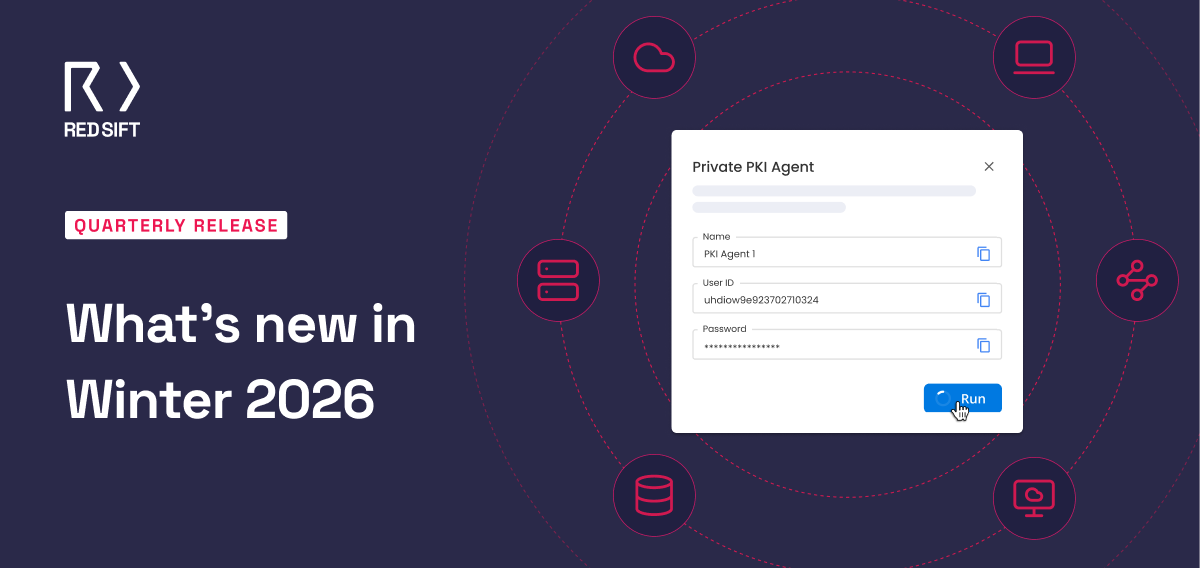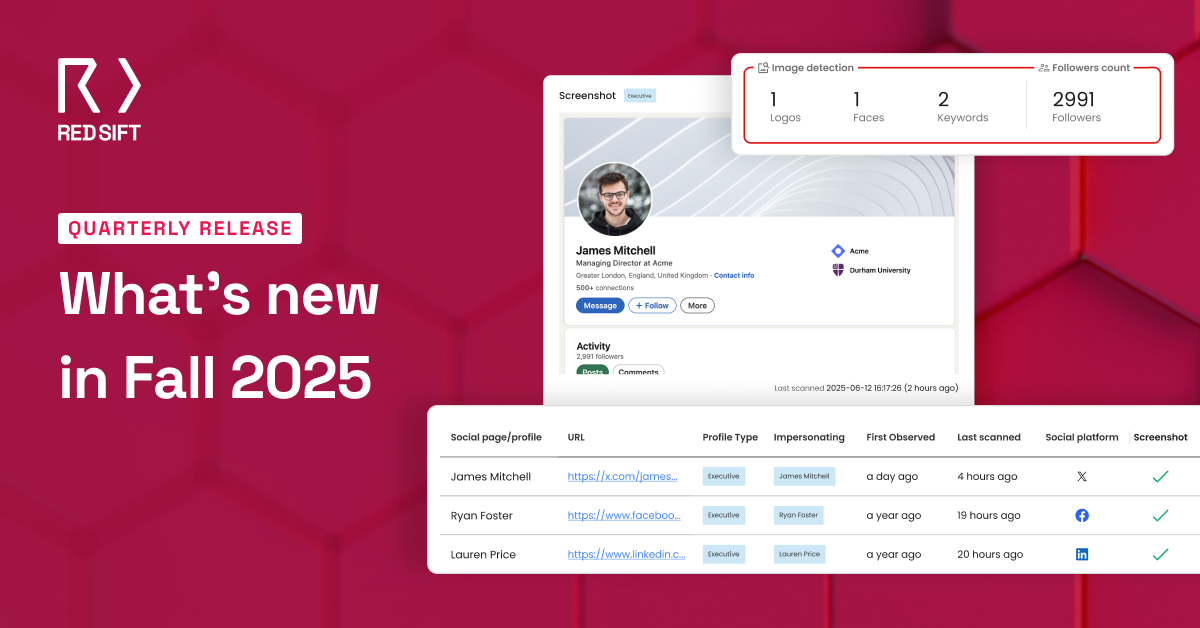How can defenders identify and resolve security issues faster with Red Sift Radar, and what does it have to do with the movie Tenet? That was the key theme of this year’s 16th e-Crimes & Cybersecurity Mid-Year Summit education session, featuring Billy McDiarmid.
If you missed the event, don’t worry—we’ve got you covered with three quick takeaways.
Learn more on Red Sift Radar—Watch the launch video:
Cybersecurity: Complex, just like Tenet
For those who have seen the movie Tenet, it’s often described as an overwhelming timeline of events without much clarity. The same can be said for navigating the confusing world of cybersecurity. With so many solutions on the market, picking the right tools can feel daunting.
Fortunately, Red Sift is here to help cut through the noise and provide clarity in a landscape full of moving parts, dependencies, and geographic nuances. This includes addressing major challenges like DNS misconfigurations, email and web service vulnerabilities, incorrect DMARC and SPF setups, and domains lacking proper protection or expired certificates still in use.
Mismanagement of these issues can lead to increased cyber threats and reputational damage. As Billy noted, “three major types of attacks include business email compromise (BEC), malware distribution via the takeover of trusted domain names, and registered domain name takeovers through nameserver attacks.” Identifying these security gaps is critical, and teams need to find swift resolutions.
Navigating AI challenges toward a solution
Security teams, though well-intentioned, often struggle to “move the needle” with the complexity of services, policies, and priorities. As Billy mentioned, “identifying, triaging, and remediating a misconfiguration fast can only be done with the right resources.”
While new technologies like generative AI can assist, tools like ChatGPT and Gemini are not built to handle the intricacies of web and email security. As pointed out during the session, “you can’t rely on them to do the job correctly—asking the same question multiple times may give you inconsistent answers.” Resolving complex security issues requires an integrated AI tool that learns and understands the customer’s issue, no matter how difficult. Relying on open source GenAI alone is both unreliable and can lead to further problems.
This is where Red Sift Radar steps in. The skilled-up large language model (LLM) is designed to save security teams time by embedding deep, domain-specific intelligence into their workflows. Through an intuitive chat interface and in-app interactions across the Red Sift portfolio, Radar identifies and resolves security issues across email, domains, and internet-facing assets 10x faster.
Red Sift Radar—A new LLM that’s safe and simple
“There’s a clear gap between standalone GenAI and AI integrated into existing tools, which makes it difficult to find the right questions and answers to quickly solve security challenges,” Billy noted. Red Sift Radar solves this by embedding contextual, data-driven prompts directly into the tools teams use every day, eliminating the need to switch to a separate chat interface.
What about incomplete data? During a live demo, Billy showcased how Red Sift Radar fully integrates standard and proprietary tools, allowing real-time monitoring of internet-connected resources from a single interface. This “single pane of glass” approach enhances consistency and keeps everything in one place. When needed, external data is incorporated to extract additional insights, ensuring organizations stay secure.
Finally, Billy highlighted how “Red Sift Radar overcomes the inconsistencies typical of open-source AI by using orchestration mechanisms called playbooks.” These ensure that queries are processed using the same tools and in the same order, enhancing consistency and reducing errors, making Radar an effective and trustworthy tool for security teams.






